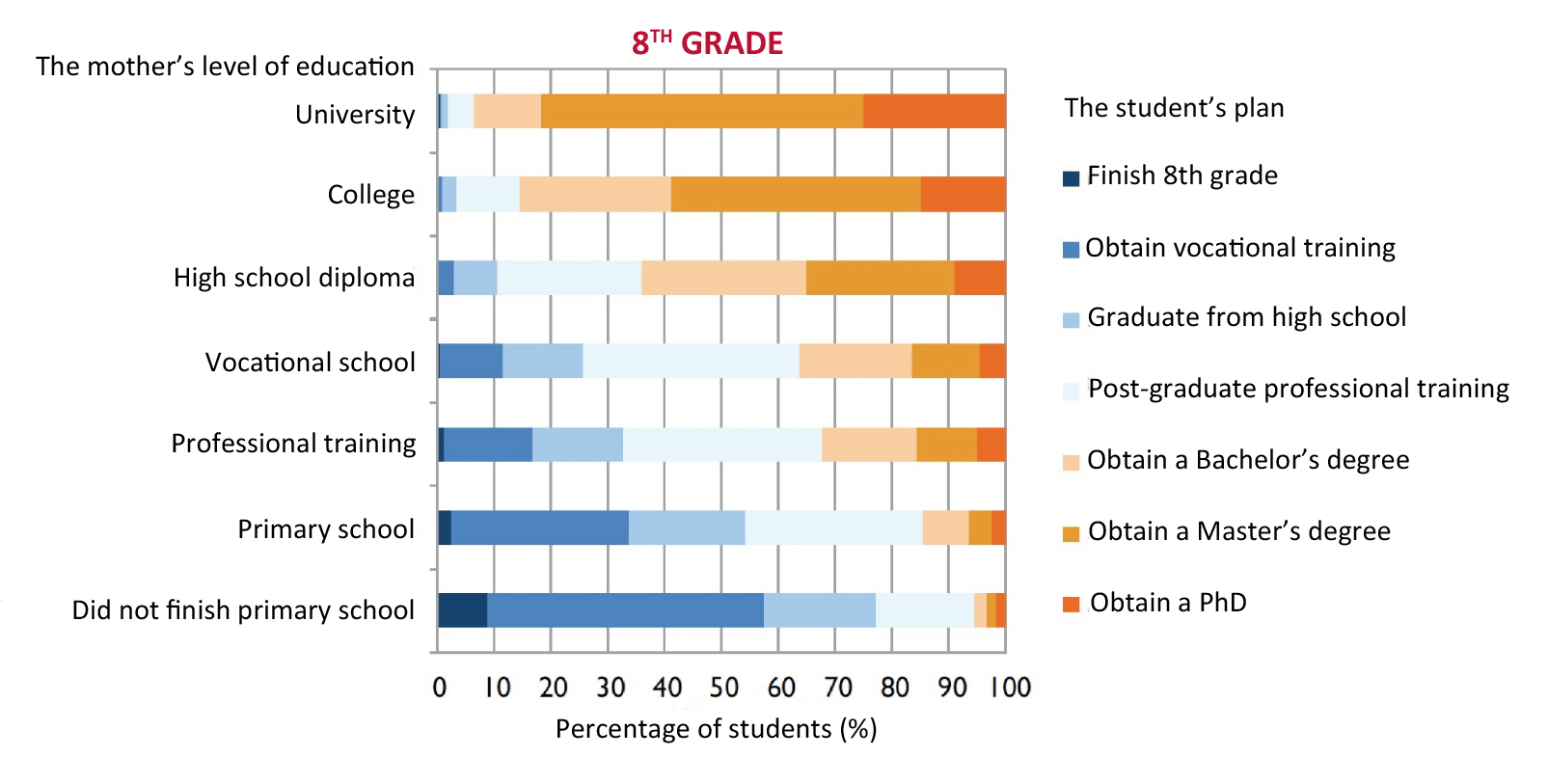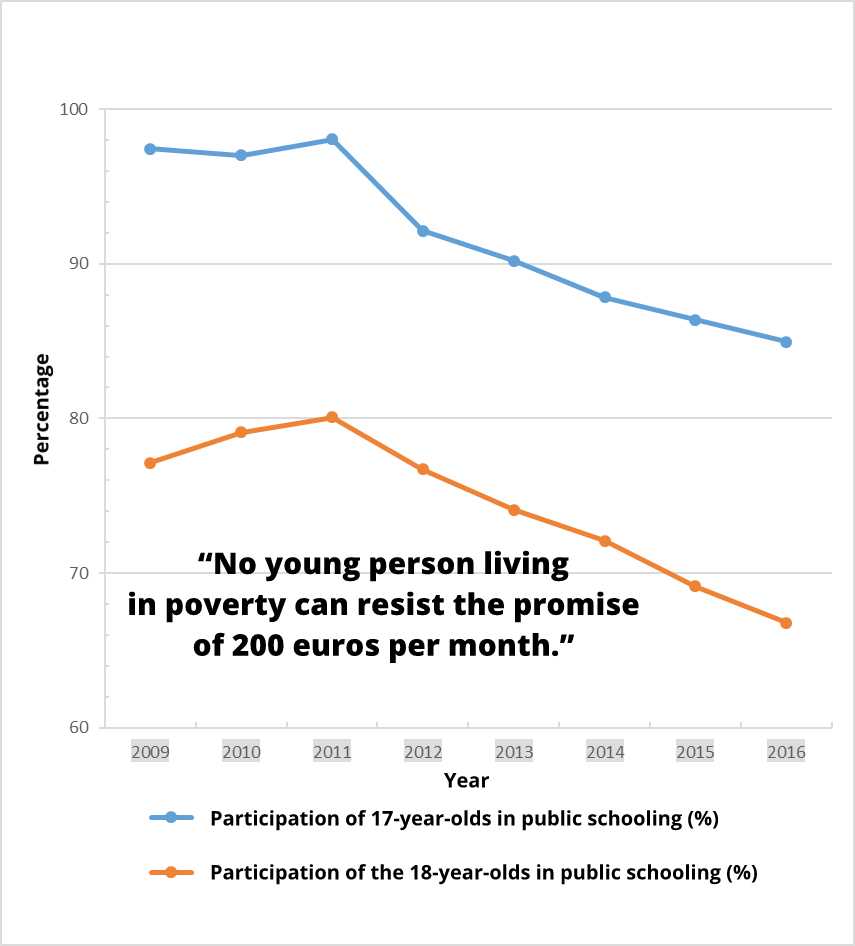In high schools, there are no young people with multiple disadvantages, because those who go on to study almost always apply to vocational schools. High schools (especially parochial, practicing, and eighth-grade high schools) do not want children from poor families.
What does the child of a mother who has graduated seek to do and what does the child of a mother employed in the public works program dream about?

Source: Országos kompetenciamérés 2016. Országos jelentés, 43.old.
“It really depends on the schools whether we live in a caste system or not. The problem with the caste system is not only that it is opposed to the majority of people's values, but also the enormous economic losses caused by the waste of human capital; above all it causes a breakdown in society and makes the country unlivable.”
Source: Berlinger Edina, Megyeri Krisztina: Amiben világutolsók vagyunk - Mit mondanak a PISA-tesztek eredményei a szegényekről? Magyar Narancs 2014/31. (07.31.)
Nearly 15% of 17-18 year-olds have dropped out of public schooling over the past few years:

Source: MTA KRTK: A közoktatás indikátorrendszere 2017, MTA KRTK, Budapest, megjelenés alatt
When disadvantaged students reach the age of 16, they are entirely flushed from formal education and end up in the unemployment system. The Labour Office offers these young people the same amount of money that their parents get through the Public Works program, and imposes on them only one condition: ’Leave school’. No young person in poverty can resist the promise of 200 euros per month. With this low amount, by the end of 2017, Hungary has stripped 15 % of 17-year-olds from the secondary school system. To put the accusation bluntly: the State budget spends more and more money on effectively ending the secondary school studies of poor kids – which mainly means Gypsies. This is not the worst of it. A proportion of school drop-outs fall in with criminal gangs, human trafficking to the West for begging and prostitution.
If somebody revolts against this mental reining in and still chooses grammar/high school studies, they can expect but 40 euros per month of „study support” from the Hungarian state. For young people over 20 years of age even this amount is taken away: young adults are left without a single penny for the duration of their studies.
Although the „For the road” scholarship pays between 20 and 50 euros, funding with such uncertain outcomes does not resolve these students’ financial problems. The families view the scholarship like a lottery game, where the chances of winnig are less if their child begins high school studies instead of vocational ones. Nobody can securely build their studies through this stipend. If a student has darker skin, they must face constant racial prejudice at school. We are moving further away from our famous European ideals.
